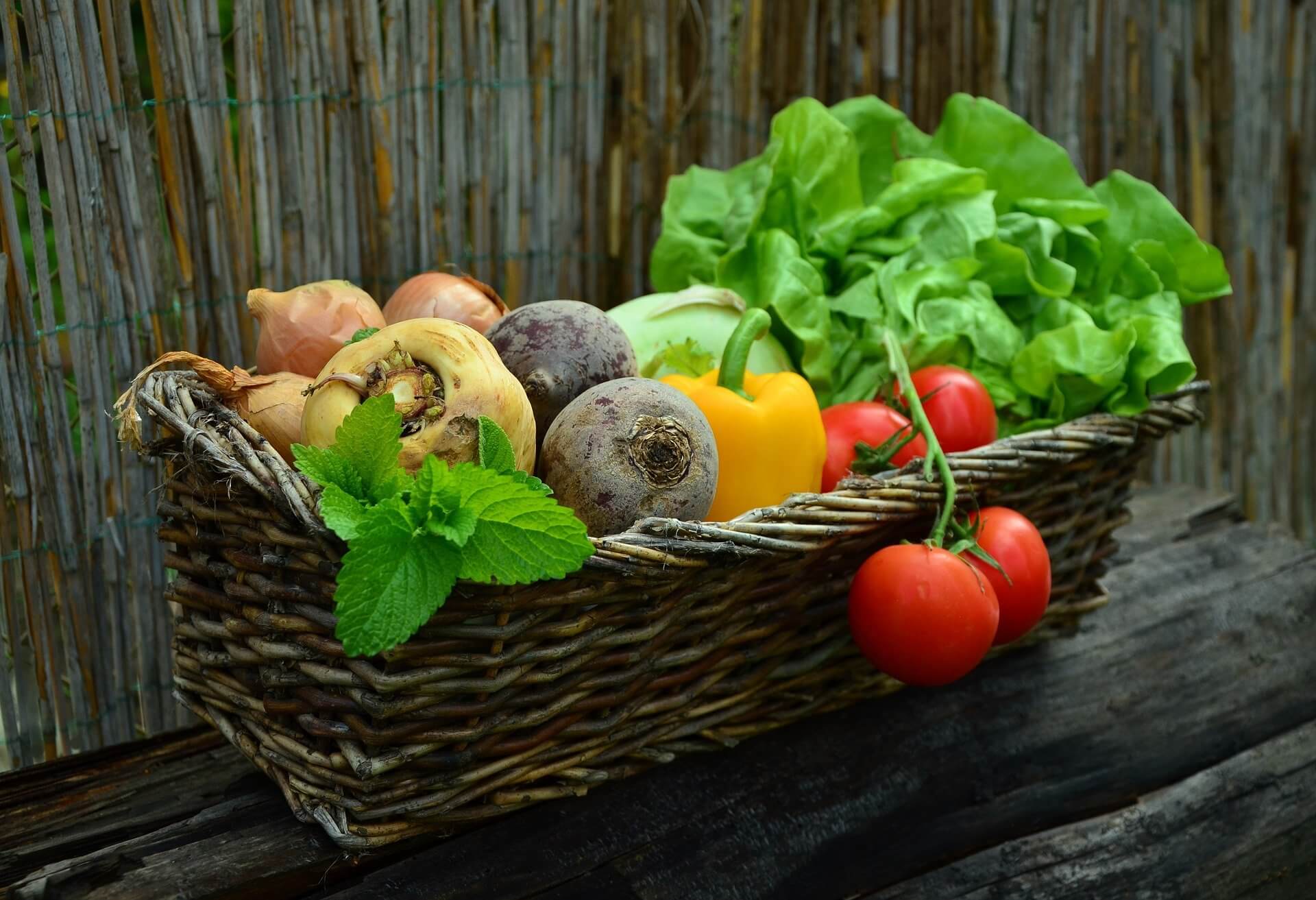With heart disease accounting for nearly one-third of deaths worldwide, it’s time to take control of your heart health. One of the best things you can do for your heart health is to adjust your diet.
The old saying is “you are what you eat” and there is a lot of truth to that statement. Enriching your body with whole nutrients has so many positive health effects on the body.
Here are 7 essential heart-healthy foods to add to your diet right now, if you haven’t already.
Beetroot
An essential nutrient in heart health is fiber, and beetroot is an amazing source of fiber. Beets are also a dense source of nitrates, which help to fight free radicals in the body.
Free radicals lead to inflammation and chronic diseases such as heart disease and cancer.
Studies have shown that the consumption of beets regularly is linked to lower blood pressure, which was demonstrated in the Hypertension journal.
Researchers found that the consumption of beet juice over 4 weeks found those with hypertension to have a significant decrease in blood pressure.
Some studies have shown beets to lower blood pressure in a matter of only a few hours due to highly concentrated nitrates.
Beets are also rich in copper, folate, iron, manganese, potassium, vitamin C, and zinc.
In addition to beets being heart-healthy, they also can improve digestion and GI issues.
Blueberries
According to a new study by the American Journal of Clinical Nutrition, eating one cup of blueberries per day can reduce the risk factors of heart disease.
Researchers state that vulnerable groups should incorporate blueberries and other berries into their diets daily to reduce the risk of type 2 diabetes and cardiovascular disease.
Sustained improvements in vascular function and arterial stiffness led researchers to find a reduced risk of heart diseases by 12-15%.
Blueberries have a polyphenol compound called “anthocyanin” which gives them their blue hue.
They have about 25 different types of anthocyanin, whereas most other berries only have a few. It is these anthocyanins that health experts believe to be heart-health contributors.
Vitamin C, fiber, and natural sweetness make blueberries an easy, yet healthy snack for anyone who wants to take control of their heart health.
*Tip: Freeze some of your blueberries for a refreshing frozen treat during the summer! Eating frozen blueberries allows long lastability and a healthy snack when you are craving sugary ice cream or other frozen desserts.
Dark, Leafy Greens
Similar to beets, leafy greens are high in nitrates, which fight inflammation.
The high amounts of vitamins, minerals, and antioxidants found in dark, leafy greens are enough to classify them as a superfood.
Vitamin K is one of the most prominent vitamins in greens, which is essential in fighting blood clots.
A study from a university in Washington state recently found that eating one cup of dark, leafy greens per day can reduce peripheral artery disease by up to 26%.
Cooking your greens can reduce their health benefits by up to 50%, but researchers say that the benefits are still well worth it.
Another analysis found that the regular consumption of leafy greens was associated with a 16% lower incidence of heart disease.
Some dark, leafy greens with high amounts of nitrates include:
- Arugula
- Cabbage
- Collard greens
- Fennel
- Kale
- Lettuce
- Mustard greens
- Parsley
- Rapini
- Spinach
- Watercress
Incorporating one or more of these types of vegetables into your diet will prove beneficial to your heart health.
Fatty Fish
When you hear “fatty” you might immediately associate that word with being unhealthy.
That is not always true!
The term fatty is referring to good unsaturated fats that our bodies need to thrive, but do not produce on their own.
Unlike harmful trans fats found in processed foods with little nutritional value, unsaturated fats are naturally occurring fats found in natural foods.
The healthiest polyunsaturated fats are omega-3 fatty acids. You can find omega-3s in many fish, including:
- Herring
- Lake trout
- Mackerel
- Salmon
- Sardines
- Tuna
Other seafood and fish also contain omega 3s but in reduced amounts. Cod, shrimp, and other shellfish also contain the compounds.
These fatty acid compounds may reduce inflammation in the body. As previously discussed, inflammation can lead to very serious diseases over time.
They can also help to prevent blood clots, lower blood pressure, decrease triglycerides, and decrease your risk of stroke.
Experts recommend eating at least two servings per week of fish from the list above for optimal heart health.
Stores also carry fish oil in capsules, which some choose to take orally over eating fish. This works for those who do not like fish.
Omega-3s are also found in flax seeds, chia seeds, walnuts, and soy products.
Green Tea
A study from Harvard Health has found that drinking more than one cup of green tea per day can reduce LDL cholesterol and triglycerides.
Reduced LDL cholesterol and triglycerides are linked to a reduced chance of death from heart disease and stroke.
Why is this?
Researchers believe that it is green tea’s high instance of polyphenols, the antioxidant that has been proven to relieve inflammation and improve cellular function.
Another study out of two groups, one who drank more than 3 cups of green tea per week and another who did not, found that the tea-drinking group was 56% less likely to develop heart disease or strokes than the non-tea-drinking group.
This study followed participants for an initial 7 years and another 5 years after the study was completed.
You may be an avid coffee drinker, but science shows that incorporating a few cups of tea per week has avid benefits to your heart health.
Walnuts
For over two decades, walnuts have been shown to have significant heart health benefits.
These flavorful nuts help to decrease LDL cholesterol and blood pressure, the two main contributors to heart disease.
They are also the only nuts to contain plant-based omega-3 fatty compound alpha-linolenic acid, or ALA.
This compound is commonly used to treat heart issues such as hardening of the arteries (atherosclerosis), high blood pressure, and heart disease.
Experts say to incorporate walnuts into your diet as a snack or add them to your meal. Walnuts add a great crunch to a variety of dishes.
Diets rich in nutrients, such as the Mediterranean diet, often call for the use of walnuts in recipes.
This diet has proven health benefits with its wide range of natural foods such as fruits, vegetables, nuts, fish, and heart-healthy oils.
Whole Grains
Whole grains refer to unprocessed grains that contain the endosperm, germ, and bran.
In contrast, refined grains generally contain only the endosperm.
Unprocessed, unrefined grains are much healthier than their processed counterpart, as they contain more vitamins, minerals, and fiber.
The fiber content is thought to keep arteries clear and healthy by health experts.
The American Heart Association officially states that everyone should eat at least three servings of whole grains per day for optimal heart health.
Studies have suggested that eating three servings of whole grains per day leads to an estimated 20-30% decrease in the risk of heart disease.
Some whole grains that are super beneficial to your diet include:
- Amaranth
- Barley
- Brown rice
- Buckwheat
- Bulgar wheat
- Millet
- Quinoa
- Spelt
- Whole corn
- Whole oats
In addition, you can enjoy 100% whole wheat bread and pasta made with the above ingredients.
Those who are gluten-sensitive may not be able to enjoy every grain on this list, but there are still gluten-free options of whole grains.
Oats are naturally gluten-free, just be sure to look for ones that state it on the packaging.
Buckwheat, millet, brown rice, and corn are all gluten-free whole grain options.
Conclusion
With getting your heart health in order, you will find that there are many changes necessary to reach your goals.
Here we have listed 7 essential heart-healthy foods to add to your diet today, which will all increase your health and well-being.
Among those foods, you will find beetroot, blueberries, leafy greens, fatty fish, green tea, walnuts, and whole grains.
Incorporating all of these foods and moderate exercise into your weekly routine will vastly improve your heart health.
The key is sticking to your diet. By dieting based on healthy principles such as the Mediterranean diet, prolonged dieting has been shown to reduce the risk of heart attack and stroke.
A healthy heart is a healthy body, so don’t hesitate to take control of your diet today!




